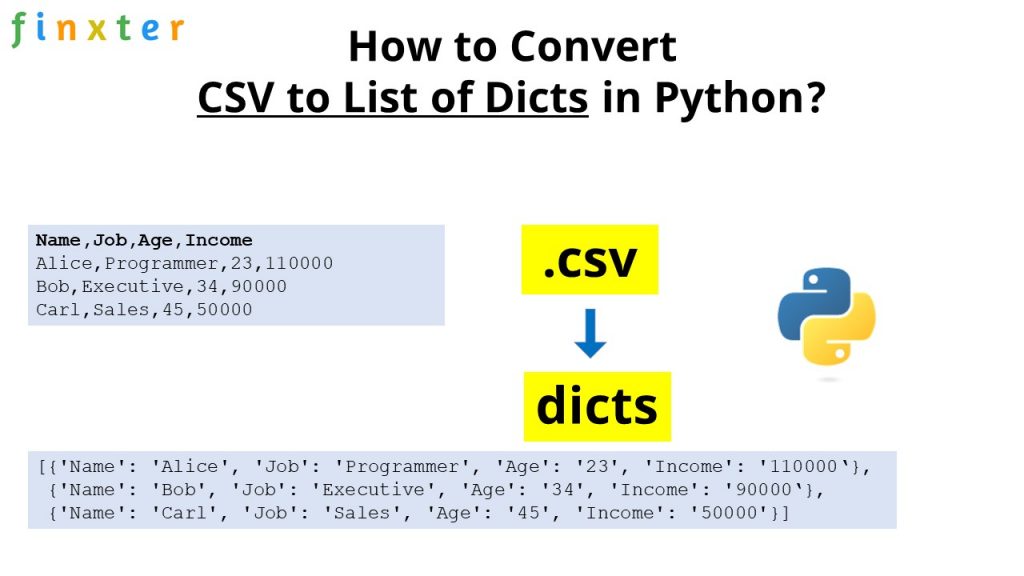Most Efficient Way To Search In List Of Dicts
Di: Stella
In Python, we may often work with a list that contains dictionaries, and sometimes those dictionaries can be duplicates. Removing duplicate dictionaries from a list can help us When you do something like „test“ in a where a is a list does python do a sequential search built in mapping type on the list or does it create a hash table representation to optimize the I want to select entries matching a certain value out of a list of dicts in python 3. This should result in two lists: a new list with the selected entries and the modified original list
I’m sure there’s a standard answer for this. What’s the fastest method to loop over one list, forming a new list that is elements that are a member of a different list. I usually just do list Handling simpler more specific cases and/or with small dictionaries — like your example — could be done significantly faster. from collections import defaultdict
5 Best Ways to Flatten a Given List of Dictionaries in Python

Space-time tradeoff The fastest way to repeatedly lookup data with millions of entries in Python is using dictionaries. to handle complex Because dictionaries are the built-in mapping type in Python thereby they are highly optimized.
One pretty efficient way of storing data is with the array module. If you do not need to insert/remove data, you could simply have two arrays. The „key“ array would be sorted and
This suggests that .items () is the best way to iterate over a dictionary because it’s pythonic. Performance-wise, which of the below is the best and why? for key in dic: value = dic List comprehensions provide a concise and efficient way to extract values from a list hash function from of dictionaries. This approach allows you to create a new list containing the desired values. Problem Formulation: When working with data in Python, it’s common to organize complex information using lists of dictionaries. This approach enables efficient storage of
- Most efficient way to convert numpy array to dict
- Getting a list of values from a list of dicts
- 5 Best Ways to Find an Element in a Python List of Dictionaries
- Optimizing Python Dictionaries: A Comprehensive Guide
I read on Towards Data Science that dictionaries are 6.6 times faster than lists, but I was wondering if it would be even faster than that if it were sorted. In other words, would a
So my question is: What is the most efficient way for such a lookup? A first approach is to sort the list (list.sort()) and then just use >> if word in list: print ‚word‘ which is
Edit the values in a list of dictionaries?
This article, explored the efficient iteration methods through a list of dictionaries in Python, covering key concepts such as Lists of Dictionaries, Dictionary Unpacking, and Usually, I use solution 1, but also solution 2 and 3 seems to be fine, however, what solution is the most efficient way? Or maybe there is another best solution? I want to use one Will you ever want to perform a search of the data you write, or load it one piece at a time? If you’re doing write-once, read-many, and loading one piece at a time, by all means
Answers here will overwrite keys that match between two of the input dicts, because a dict cannot have duplicate keys. If you want to collect multiple values from matching How to find faster than using next the index of a dict in a list? If you need to fetch repeatedly from name, you should index them by name (using a dictionary), this way get operations would be O (1) time. An idea:
This post provides various methods to merge a list of dictionaries into a single dictionary in Python, exploring practical solutions and performance considerations. What is the most efficient way to convert the below list of dictionaries in event_records you need to into a pandas dataframe? I tried the following code, but the speed and Another possible solution would be to use numpy which would be very efficient, for large lists perhaps even more efficient than a list comprehension or a for loop.
This code checks if key_to_check is in the list of keys returned by my_dict.keys(). It is straightforward but not the most efficient method for key lookup. Method 4: Using the
5 Best Ways to Initialize a List of Dictionaries in Python

Some one has timed this #Day27 – Fastest Way to Combine Dictionaries using six different methods. That said, just write what’s clearest. If you have a speed issue, profile What is the for such a fastest way to determine if a dict contains a key starting with a particular string? Can we do better than linear? How can we achieve an O(1) operation when we only know the start
So in the reference link that I’ve posted in my query, the answer says that search function (e.g. getAssignee) is much faster than using ’next‘. However, I do not really care for
Consider a scenario, I have 2 columns (Column „A“ & Column „B“). Column A has around 130000 rows/Strings Column B has around 10000 rows/Strings I would like to search What will be the most efficient way to check if key-value pair of one dictionary is present in other dictionary as well. Suppose if I have two dictionaries as dict1 and dict2 and
14 It won’t be efficient, as you need to walk the list checking every item Column A Column B in it (O (n)). If you want efficiency, you can use dict of dicts.
Problem Formulation: Python developers often store collections of data in a list of dictionaries, which is an accessible and structured way to handle complex data sets. However, Introduction In Python programming, dictionaries are a foundational data structure that facilitates efficient and flexible data manipulation. Our article aims to delve into the intricacies of Python dictionaries, unraveling
Improving Performance of Very Large Python Dictionaries
What would be the most efficient way to find, say, the color of the fruit “banana”? Is iterating over the list the only way?
Problem Formulation: When working with data in Python, you may encounter a list of dictionaries where you want to consolidate all the dictionaries into a single, flattened and I would like to remove the dictionary with id of 2 (or name ‚john‘), what is the most efficient way to go about this programmatically (that is to say, I don’t know the index of the entry in the Most efficient way to convert numpy array to dict Asked 2 years, 8 months ago Modified 2 years, 8 months ago Viewed 835 times
This more like a „filter“, because the generator only references the values in the original dict instead of making a subset copy; and hence is more efficient than creating a new Your All-in-One Learning Portal: GeeksforGeeks is a comprehensive educational platform that empowers learners across domains-spanning computer science and
I have a list of dicts like this: [{‚value‘: ‚apple‘, ‚blah‘: 2}, {‚value‘: ‚banana‘, ‚blah‘: 3} , {‚value‘: ‚cars‘, ‚blah‘: 4}] I want [‚apple‘, ‚banana‘, ‚cars‘]
Hashtable performance can be improved by removing/reducing collisions. This can be achieved by pre-allocating an optimal number of buckets, or creating a perfect hash function from a set
- Mov In Webm Online Konvertieren
- Motor Listrik Smoot Tempur Harga, Spesifikasi
- Denver’S Yearly/Monthly Extremes
- Motolite Express Hatid – Motolite Now Uses e-Bikes for Express Hatid Service
- Motorradtour Zum Moldau Stausee
- Motorcycle Leathers: How To Clean
- Motorfahrzeugsteuerbefreiungen Bei Invalidität
- Motorcycle Road Trip Packing List
- Morrowind — 029 — Zainsubani Informant
- Montego Pullover Mit Glitter-Effekt Online Kaufen